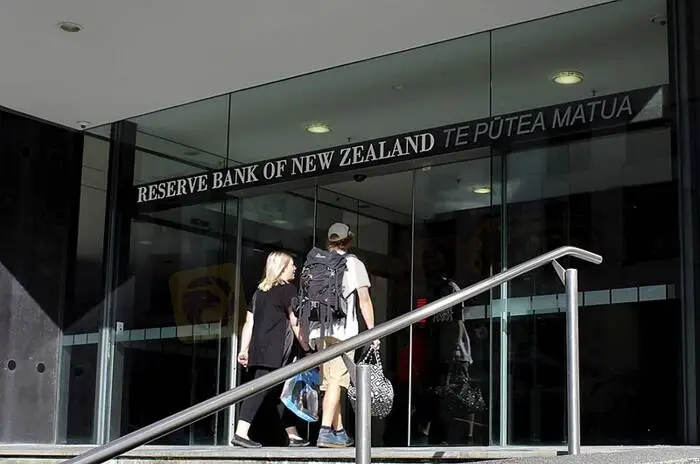简体中文
繁體中文
English
Pусский
日本語
ภาษาไทย
Tiếng Việt
Bahasa Indonesia
Español
हिन्दी
Filippiiniläinen
Français
Deutsch
Português
Türkçe
한국어
العربية
RBNZ wants rates ‘comfortably above neutral’ to tame inflation-Hawkesby
Abstract: Reserve Bank of New Zealand Deputy Governor Christian Hawkesby said on Monday that policymakers had “certainly considered 25 or 75” basis point increases before ultimately deciding to raise the cash rate by 50 basis points (bps).
Reserve Bank of New Zealand Deputy Governor Christian Hawkesby said on Monday that policymakers want rates to be “comfortably above neutral” to help lower core inflation.

Hawkesby told Reuters in a phone interview the RBNZ had “certainly considered 25 or 75” basis point increases last week before ultimately deciding to raise the cash rate by 50 basis points (bps).
He said if the committee thought that market pricing was wrong and they need to shift it they would consider a larger move than 50 bps.
“At the meeting last week, we sort of reflected that actually market pricing for the OCR (official cash rate) over the period ahead was reasonably similar to what we were putting out in our OCR projections,” he said.
New Zealands central bank last week delivered its seventh straight interest rate hike and signaled a more hawkish tightening path over coming months to rein in stubbornly high inflation. The cash rate is now at 3.0%, a level not seen since September 2015, and rates are forecast to be at 4.0% by early next year.
Hawkesby said the central banks strategy was to get the cash rate “comfortably above neutral” to help to bring down core inflation.
“That will afford us some breathing space to see how things are playing out,” he said.
“Once we get the OCR up into that 4%-4.25% level we‘re seeing things evenly balanced from there. So we’d put equal weight on having to put the OCR up as we would putting it down.”
A number of economists are expecting the central bank will be forced to cut rates in 2023 due to slowing growth. In the first quarter, New Zealands economy unexpectedly contracted due to a surge in COVID-19 cases and growth is expected to be restrained over coming quarters due to tightening financial conditions.
“The economy will evolve differently than our projections. There will be shocks that come along. There‘ll be data that’s different than the forecast. And well just keep coming back to what does it mean for our mandates,” Hawkesby said.
“We certainly are projecting an environment where the economy cools,” he said.
Disclaimer:
The views in this article only represent the author's personal views, and do not constitute investment advice on this platform. This platform does not guarantee the accuracy, completeness and timeliness of the information in the article, and will not be liable for any loss caused by the use of or reliance on the information in the article.
WikiFX Broker
Latest News
eToro Adds ADX Stocks to Platform for Global Investors
Why Do You Keep Blowing Accounts or Making Losses?
B2BROKER Launches PrimeXM XCore Support for Brokers
Germany's Election: Immigration, Economy & Political Tensions Take Centre Stage
WikiFX Review: Is IVY Markets Reliable?
Checkout FCA Warning List of 21 FEB 2025
Google Bitcoin Integration: A Game-Changer or Risky Move?
IG 2025 Most Comprehensive Review
It is Not True Love | Tips on Avoiding Romance Scams
XTB Secures Chilean License, Expands Latin America Footprint
Currency Calculator






